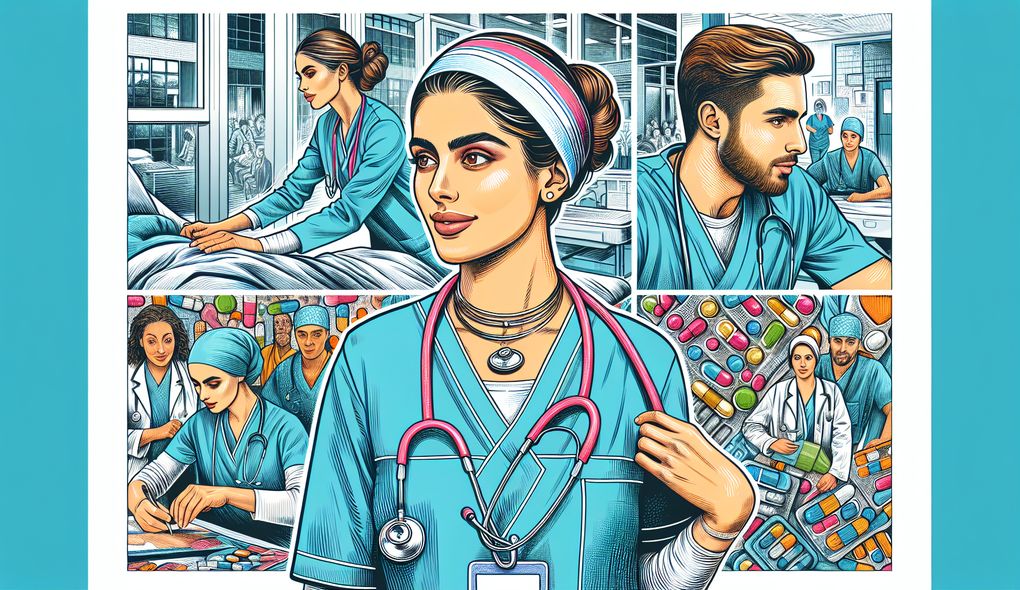Tell us about a time when you had to perform a minor surgical intervention. What was the procedure and how did you handle it?
INTERMEDIATE LEVEL

Sample answer to the question:
One time, while working in the emergency department, a patient came in with a deep laceration on their arm. The procedure involved suturing the wound. I first assessed the patient's vital signs and ensured they were stable. Then, I cleaned the wound thoroughly to prevent infection. I administered a local anesthetic to numb the area before suturing. Throughout the procedure, I communicated with the patient, explaining each step and addressing any concerns they had. After the sutures were in place, I dressed the wound and provided instructions for proper care and follow-up. The patient expressed gratitude for my professionalism and compassion throughout the process.
Here is a more solid answer:
During my time as an emergency nurse practitioner, I encountered a patient with a deep laceration on their arm that required a minor surgical intervention. With strong clinical judgment, I quickly assessed the severity of the wound and identified the need for suturing. Adhering to established emergency care protocols, I prepared the necessary equipment, including sterile instruments and sutures of appropriate size. Before proceeding, I ensured the patient's vital signs were stable, and I provided them with a local anesthetic to minimize discomfort. Throughout the procedure, I effectively managed the medical devices, such as the suturing needle and forceps, ensuring precise and accurate sutures. Additionally, I maintained clear and concise communication with the patient, explaining each step and addressing their concerns. After completing the suturing, I dressed the wound appropriately and provided detailed instructions for proper care at home. The patient expressed their gratitude for my compassionate care and the successful outcome of the procedure.
Why is this a more solid answer?
The solid answer expands on the basic answer by providing more specific details and examples. It highlights the candidate's strong clinical judgment and knowledge of emergency care procedures by emphasizing their quick assessment of the wound and adherence to protocols. Additionally, it showcases their proficiency in managing medical devices and equipment by mentioning the preparation and use of sterile instruments and sutures. The candidate's excellent communication and interpersonal skills are demonstrated through the clear and concise explanations given to the patient. However, the answer could benefit from further elaboration on the candidate's ability to multitask and prioritize in a fast-paced environment.
An example of a exceptional answer:
In a fast-paced emergency department setting, I faced a challenging case involving a patient with a deep laceration on their arm that required immediate attention. Demonstrating exceptional clinical judgment and critical thinking skills, I quickly assessed the severity of the wound and made the decision to proceed with a minor surgical intervention. To ensure optimal patient outcomes, I not only followed established emergency care protocols but also leveraged my advanced knowledge of wound management techniques to select the most appropriate approach. I efficiently gathered the necessary medical devices and equipment, including sterile instruments, suturing materials, and local anesthesia. Prior to the procedure, I prioritized patient comfort by adequately administering a local anesthetic to minimize pain and anxiety. Throughout the intervention, I skillfully utilized a variety of medical devices and equipment, ensuring precise and accurate suturing. Moreover, I expertly managed the fast-paced environment by effectively multitasking, attending to other patients' needs intermittently while prioritizing the suturing procedure. The seamless coordination of my tasks allowed me to deliver prompt and high-quality care to each individual. Exhibiting empathy and compassion, I maintained open communication with the patient, addressing their concerns and providing reassurance. Post-surgery, I thoroughly educated the patient on wound care instructions and arranged a follow-up appointment to monitor their progress. This comprehensive approach resulted in a successful outcome, with the patient expressing their gratitude for my expertise and unwavering commitment to delivering equitable and compassionate care.
Why is this an exceptional answer?
The exceptional answer goes above and beyond by providing even more specific details and showcasing the candidate's exceptional skills and qualities. It emphasizes their exceptional clinical judgment and critical thinking skills by highlighting their decision-making process and their advanced knowledge of wound management techniques. The answer also demonstrates their proficiency in managing a variety of medical devices and equipment by mentioning the gathering and utilization of specific tools. Additionally, it showcases the candidate's exceptional ability to multitask and prioritize in a fast-paced environment by mentioning their coordination of tasks while attending to other patients. The answer also emphasizes the candidate's compassion and commitment to providing high-quality, equitable patient care through their communication with the patient, thorough patient education, and arrangement of a follow-up appointment. Overall, the exceptional answer provides a comprehensive and detailed account of the candidate's experience performing a minor surgical intervention.
How to prepare for this question:
- Familiarize yourself with emergency care procedures and protocols, paying particular attention to minor surgical interventions.
- Stay updated on the latest techniques and advancements in wound management.
- Practice using a variety of medical devices and equipment commonly used in minor surgical interventions, ensuring proficiency in their operation.
- Develop excellent communication and interpersonal skills to effectively communicate with patients and address their concerns.
- Improve multitasking and prioritization skills by seeking opportunities to work in fast-paced environments.
- Seek out experiences that demonstrate compassion and commitment to providing high-quality, equitable patient care.
What are interviewers evaluating with this question?
- Strong clinical judgment and critical thinking skills.
- Advanced knowledge of emergency care procedures and protocols.
- Proficiency in managing a variety of medical devices and equipment.
- Excellent communication and interpersonal skills.
- Ability to multitask and prioritize in a fast-paced environment.
- Compassion and commitment to providing high-quality, equitable patient care.

